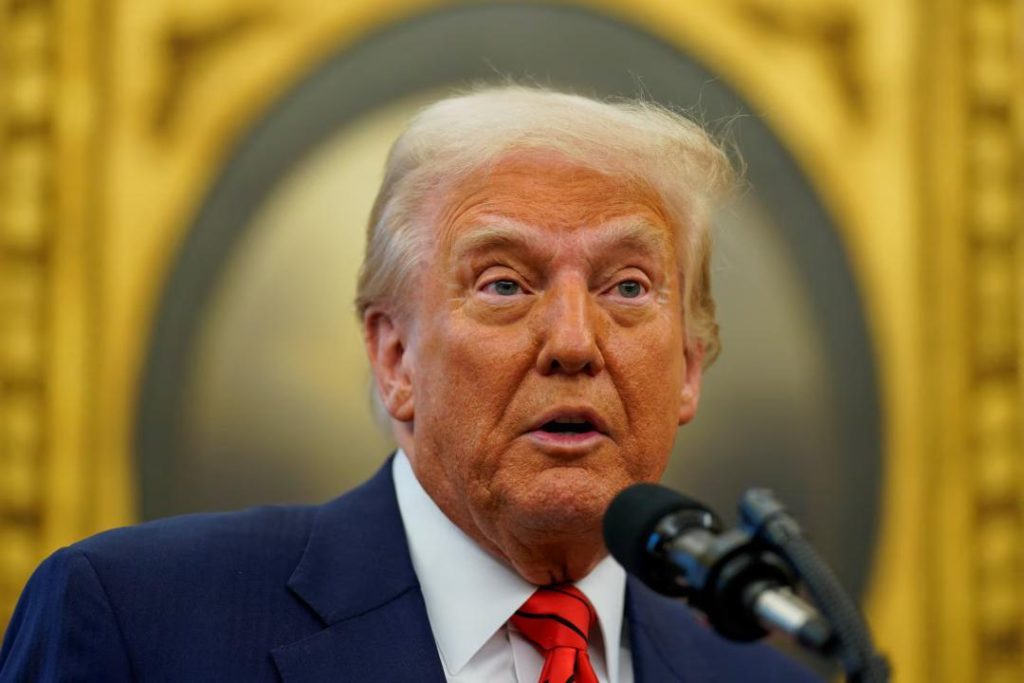
Trump Pauses Repeal of Duty-Free Treatment for Low-Value Imports
In a significant development, US President Donald Trump has paused the cancellation of the ‘de minimis’ exemption on import tariffs, giving the Commerce Department more time to make the order workable. The de minimis rule exempted low-value imports shipped to individuals from customs duties, and the pause has sent shockwaves through the international trade community.
The de minimis rule, which was set to be repealed in June, allowed individuals to receive small shipments of goods, valued at less than $800, duty-free. This exemption was a significant benefit to Chinese e-commerce companies, including Shein, Temu, and AliExpress, which rely heavily on these small shipments to reach American consumers.
The news comes as a surprise to many, as the Trump administration had previously announced plans to scrap the de minimis exemption as part of its efforts to reduce the US trade deficit with China. The exemption was seen as a loophole that allowed Chinese companies to avoid paying duties on small shipments, giving them an unfair competitive advantage over American businesses.
However, the pause on the repeal of the de minimis exemption has been seen as a major victory for Chinese e-commerce companies and small businesses that rely on these shipments. The exemption not only benefits Chinese companies but also American consumers who can now enjoy duty-free shipping on small purchases.
The decision to pause the repeal has been attributed to the Commerce Department, which is seeking more time to implement the new rules and regulations surrounding the de minimis exemption. The department is reportedly working to develop a new framework that would allow for more accurate tracking and valuation of small shipments, in an effort to prevent evasion of duties.
The pause on the repeal has also been seen as a sign of the Trump administration’s willingness to engage in a more nuanced approach to trade policy, rather than relying solely on tariffs and trade restrictions. The move is seen as a sign that the administration is willing to listen to the concerns of industry stakeholders and make adjustments to its policies accordingly.
The de minimis exemption has been a contentious issue in the US-China trade relationship, with many US lawmakers and trade experts arguing that it is a major loophole that allows Chinese companies to avoid paying duties on small shipments. However, Chinese e-commerce companies and small businesses have argued that the exemption is necessary to enable them to compete with American businesses and provide affordable products to American consumers.
The pause on the repeal of the de minimis exemption has sent a mixed signal to the global trade community, with some experts arguing that it is a sign of a more nuanced approach to trade policy, while others see it as a sign of weakness and a failure to take action on trade issues.
In a statement, the US Commerce Department said that the pause on the repeal was necessary to allow for a more detailed review of the de minimis exemption and to ensure that any changes to the rule are workable and effective.
“We are committed to ensuring that our trade policies are fair, transparent, and effective in promoting American jobs and economic growth,” said a Commerce Department spokesperson. “We are taking the time necessary to get this right and to make sure that any changes to the de minimis exemption are in the best interests of American consumers and businesses.”
The pause on the repeal of the de minimis exemption is a significant development in the ongoing trade tensions between the US and China. The move is seen as a sign of the administration’s willingness to engage in a more nuanced approach to trade policy, and to listen to the concerns of industry stakeholders.
As the trade community waits to see what the Commerce Department’s next move will be, one thing is clear: the pause on the repeal of the de minimis exemption is a significant development that will have far-reaching implications for the global trade landscape.






